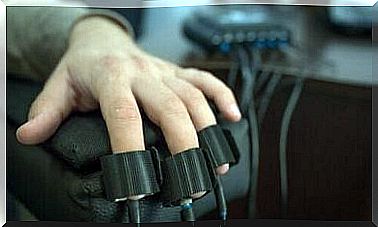Back Pain From Anxiety: What To Know?

Back pain from anxiety does not always go away with a paracetamol tablet or sleeping on the best mattress on the market. We live in a society where stress and anxiety reach level 9, while it should not exceed level 5. We find it too hard to control worries and manage emotions, and all of this negatively affects the muscle system. skeletal.
It is fair to say that back pain is by far one of the most common ailments. And it is also true that the triggers are many: bad posture, workload, arthritis, osteoporosis, breakage or problems with a vertebra … However, it should not be underestimated that emotional disorders (such as anxiety and depression) also play a decisive role.
A large part of the adult population (but also children and adolescents) has suffered, at least once in their life, from back pain from anxiety. Reason why, it is good to deepen the subject, recognizing its characteristics and triggering factors.

Anxiety Back Pain: Why Me?
Why me? Why do I have this back pain from when I get up until I go to bed? There are many who ask themselves this every day, especially in this last year. Indeed, there are times when the combination of environmental and biological factors can cause a greater physical reaction to anxiety than normal.
For example, common low back pain has a strong social and economic impact. In fact, it is very difficult to work when back pain prevents normal movement. Not to mention the time (and money) we invest in medical examinations and treatments, drugs, therapies, physiotherapy.
It is therefore evident that back pain and anxiety often go hand in hand. In addition to this, the study conducted by the University of Porto (Portugal) highlights an interesting aspect in this regard: people suffering from chronic low back pain often also show depressive and anxiety disorders.
These psychological states, in fact, can even interfere with the effectiveness of some treatments. That is, the psychological factor weighs significantly on disorders of the musculoskeletal system.
What are the causes?
There are many factors at the origin of anxiety back pain, but one aspect in particular must be taken into account. The discomfort occurs when the state of anxiety continues over time, causing alterations in the levels of cortisol, epinephrine, norepinephrine and dopamine.
Among the various causes is vasoconstriction, resulting in reduced blood supply to the muscles, tendons, ligaments and nerves of the back. Reduced oxygenation hinders the natural supply of nutrients to these areas.
This produces an accumulation of biochemical residues in the muscles and tendons and a variable symptomatology that includes stiffness, cramps, lack of flexibility, tension and even pain.
In addition, in situations of anxiety and stress, nerve structures are subject to increased pain perception and hypersensitivity in the spinal area.
Tension myositis syndrome
Tension myositis syndrome was described by Dr. John E. Sarno, a professor of rehabilitation medicine at New York University School of Medicine. He claimed that anxiety- induced back pain originated from the tension exerted on the muscles of the entire spine as a result of stress.

How to relieve back pain from anxiety or stress?
To treat anxiety back pain you need to make some changes in your habits. It is not enough to perform a series of exercises until the pain subsides and then abandon them completely.
Back health, as well as psychological health, requires daily attention, made up of effort and will. Therefore, it is good to reflect on the following aspects.
Tips for taking care of your back and emotions
Body and mind are united by a self-sustaining bond. We cannot limit ourselves to physical health by neglecting the emotional sphere.
In this sense, it is important, first of all, to rationalize emotions and pay attention to one’s inner dialogue. In particular:
- It is essential to have moments of rest during the day. Spaces of reconnection with oneself, of physical and mental calm, extremely important.
- Walking for half an hour every day is extremely healthy. The body, as well as the back, needs to move; therefore activities such as swimming, running or a simple walk are highly recommended.
- Deep breathing and diaphragmatic exercises are useful in cases of anxiety and physical pain.
- Yoga is also extremely positive in these cases.
- Pay attention to your posture when sitting in front of the computer. Take breaks at regular intervals to move around a bit.
Conclusions
In summary, a multidisciplinary approach must be adopted to treat anxiety-induced back pain. Taking into account disciplines such as psychology, physiotherapy, sport and ergonomics is essential to produce improvements in our quality of life.









